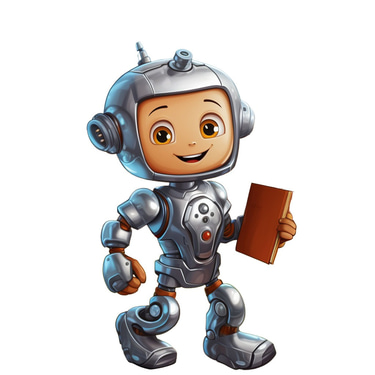Smart Agriculture: How AI Could Boost Food Production and Sustainability - Explained for Kids
7/3/20244 min read


What is Smart Agriculture?
Smart agriculture is a new and exciting way of farming that uses advanced technology to help farmers grow more food in a better way. Imagine a farmer who has a lot of tools at their disposal, like robots, computers, and even flying drones. These tools work together to make farming easier, more efficient, and more sustainable.
One of the coolest tools in smart agriculture is the sensor. Sensors are small devices placed in the soil to measure important things like moisture and temperature. By knowing exactly how wet or dry the soil is, farmers can give their plants just the right amount of water. This helps the plants grow healthy and strong without wasting water.
Drones are another amazing tool used in smart agriculture. These are small flying machines that can quickly and safely fly over fields to check on crops. The drones take pictures and videos from above, allowing farmers to see if any plants need extra care or if there are any problems like pests or diseases. With this information, farmers can take action right away to protect their crops.
Robots are also used to help with tasks that might be too hard or time-consuming for people. For example, some robots can plant seeds, while others can pick fruits and vegetables. This means that farmers can spend more time making sure their plants are growing well and less time doing tough physical labor.
All these smart tools work together to help farmers know exactly what their plants need. By using technology, farmers can grow more food with less waste and fewer resources. This not only helps them produce more healthy food but also takes care of our planet by using resources wisely. Smart agriculture is truly a fantastic way to make farming better for everyone!
How AI Helps Farmers
Imagine having a super-smart friend who knows everything about gardening. This friend can tell you the best time to plant your seeds, give you a heads-up about the weather, and even spot if any of your plants are sick before you notice. In the world of smart agriculture, that super-smart friend is called artificial intelligence, or AI for short.
AI is like a powerful computer that can learn and make decisions, much like a human would. For farmers, AI can be incredibly helpful in many ways. One important role of AI in farming is predicting the weather. By analyzing vast amounts of weather data, AI can forecast conditions like rain, sunshine, and temperature changes. This information is crucial for farmers because it helps them decide the best time to plant their seeds or harvest their crops.
Another way AI assists farmers is by monitoring the health of plants. AI systems can use special cameras and sensors to look at plants and detect if they are healthy or sick. For example, if a plant has a disease, AI can spot the problem early on, much like a doctor diagnosing an illness. This early detection allows farmers to take action before the disease spreads to other plants, saving their crops from potential damage.
AI can also provide advice on the best farming practices. For instance, it can analyze the soil quality and suggest the right type of fertilizer to use. It's like having a robot friend who knows exactly what your garden needs to thrive. With AI's help, farmers can grow healthier and more plentiful crops, which is essential for feeding a growing population.
In summary, AI plays a big role in smart agriculture by predicting the weather, monitoring plant health, and giving farmers valuable advice. This technology helps farmers make better decisions, leading to increased food production and more sustainable farming practices. Just like a helpful robot friend, AI is making a significant difference in the way we grow our food.
Why Smart Agriculture is Good for Our Planet
Smart agriculture is a game-changer for our planet. By using AI and other advanced technologies, farmers can make better decisions that help protect our environment. One of the most important benefits is how it helps save water. Traditional farming methods often use a lot of water, but smart agriculture uses sensors and data analytics to determine exactly how much water crops need. This means that farmers can water their plants just the right amount, which helps preserve our precious water resources.
Another significant advantage of smart agriculture is the reduction of chemical use. In the past, farmers had to guess how much fertilizer or pesticide to use, often leading to overuse. With AI, they can now monitor the health of their crops in real-time and apply only what is necessary. This minimizes the amount of chemicals that end up in the soil and water, keeping these natural resources cleaner and healthier.
Smart agriculture also helps reduce waste. By using technologies like drones and satellite imagery, farmers can monitor their fields more effectively and identify areas that need attention. This ensures that every bit of food grown is used wisely, reducing the amount of produce that goes to waste. For example, sensors can detect when fruits and vegetables are ripe, so they can be harvested at the perfect time, ensuring they are used rather than spoiled.
Healthy soil is another benefit of smart agriculture. Practices like crop rotation and precision farming help maintain soil fertility. AI can analyze soil conditions and suggest the best crops to plant, which keeps the soil rich in nutrients. This not only improves the yield but also ensures that the land remains productive for future generations.
Overall, smart agriculture is a win-win for both people and the planet. It helps us grow more food while using fewer resources and causing less harm to the environment. By adopting these innovative farming practices, we can ensure a more sustainable future for everyone.
